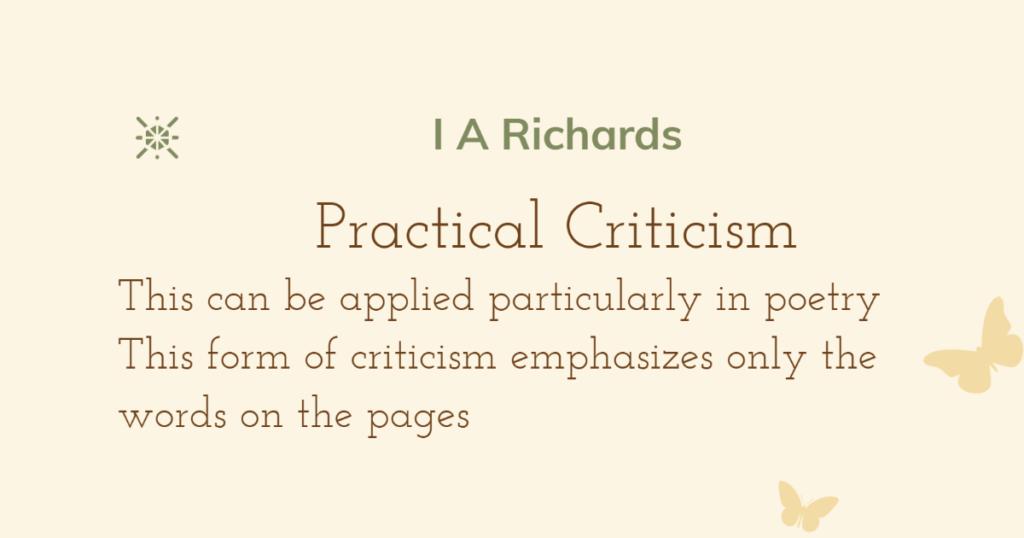Ivor Armstrong Richards was a poet, dramatist, critic, philosopher, and psychologist of the 20th century. He was the one who brought scientific precision and objectivity into literary criticism. Contributions of I A Richard leads to the emergence of New Criticism. He wrote many important literary theoretical works like Principles of Literary Criticism, Practical Criticism, Coleridge on Imagination, The Foundation of Aesthetics, and The Meaning of Meaning
Richard was famous for his work, Practical Criticism (1929) which is based on his experiments conducted in Cambridge where he distributed poems among his students without giving details and background knowledge about authorship and period. Then he asked his pupils to comment on them. Each student comes up with different interpretations of the same poem. Here I A Richards want to encourage his students to concentrate only on ‘the words on the page’ rather than any other external factors. This is the origin of Practical Criticism. Practical Criticism is a form of analysis that emphasizes the words on the pages and ignore all other external factors like the author’s intention, the socio-cultural background of the text, the ideology of the writer, the period of the work, etc.
Practical Criticism discusses four kinds of meaning, particularly in poetry. 1. Sense, 2. feeling, 3. tones, 4, intention. The total meaning of work is determined by these factors. therefore the reader has to consider these four meanings while appreciating a literary work. The meaning of a literary work is a combination of these four components.

